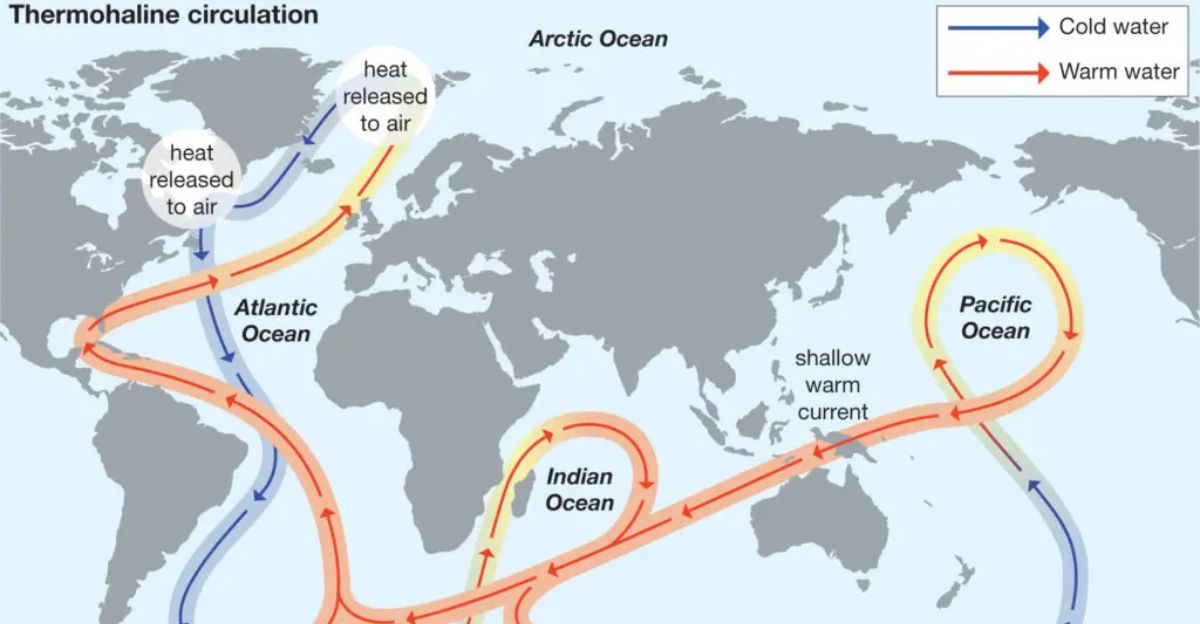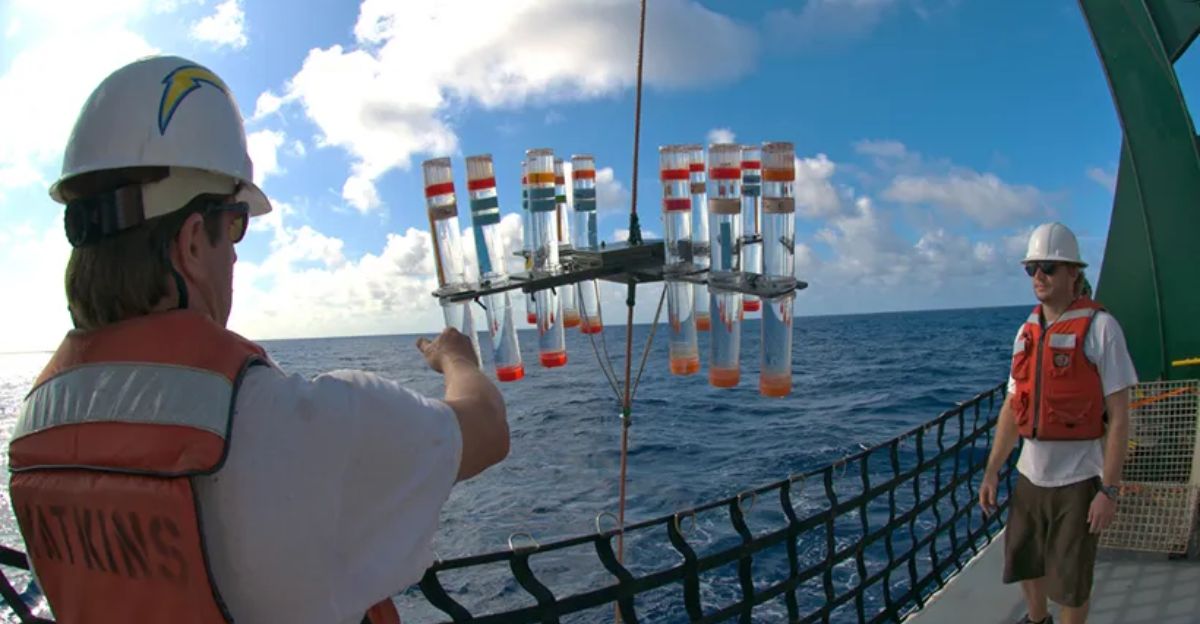
The oceans are a critical component of Earth’s climate system, absorbing more than 90% of the excess heat generated by greenhouse gases, acting as a massive heat sink that moderates global warming.
So is climate change overhyped? Recent research reveals that oceans may absorb heat faster and more efficiently than previously understood, redistributing it through currents and deep water layers.
This process temporarily slows surface temperature rise but does not eliminate long-term climate risks. Understanding ocean heat absorption is crucial for improving climate models and preparing for future environmental changes.
Oceans as Earth’s Major Heat Sink

Oceans cover nearly three-quarters of the planet’s surface and absorb most heat trapped by greenhouse gases. This heat is distributed by ocean currents and stored in deep layers, which delays the warming of surface waters.
While this slows atmospheric temperature increases, it also results in heat retention in the ocean for decades or longer, eventually affecting climate systems globally. This dynamic highlights the ocean’s vital role in regulating Earth’s temperature and the complexity of climate change impacts.
Heat Absorption Mechanisms

The rate at which oceans absorb heat depends on variables such as salinity, depth, and current patterns. Recent studies show that deep ocean layers absorb more heat than surface waters, challenging older climate models.
This deeper heat storage stabilizes atmospheric temperatures temporarily but may stress marine ecosystems and alter ocean chemistry. Accurately quantifying these heat absorption rates is essential for refining predictions about future climate behavior.
Regional Differences in Ocean Cooling

Heat absorption varies significantly across ocean basins. For example, the Atlantic Ocean absorbs heat more rapidly due to its strong current systems, like the Gulf Stream, which transport warm water northward.
The Pacific and Indian Oceans, on the other hand, exhibit slower heat uptake. These regional variations influence local weather patterns and ecological conditions, making it crucial to map and monitor ocean temperature changes worldwide.
Impacts on Marine Ecosystems

Increased heat absorption impacts marine life by altering habitats, migration routes, and breeding cycles. Though the accumulation of heat might temporarily reduce the stress on the ecosystems at the surface of the sea, the overall warming and changes in ocean chemistry pose risks to biodiversity.
Continuous monitoring of marine ecosystems is critical to understanding how climate change impacts global ecological balance and food security.
Influence on Weather Patterns

Ocean heat content directly affects weather phenomena like hurricanes, monsoons, and droughts. Variations in ocean temperature can lead to shifts in storm intensity and precipitation patterns.
For example, cooler surface waters in some regions may lead to less severe storms, while warming in others could intensify the impact of extreme weather. Understanding such interactions is essential to help enhance weather predictions and disaster preparedness.
Advances in Ocean Monitoring Technology

Recent technological advances, such as underwater robots and satellite sensors, have revolutionized ocean temperature measurement. These tools provide real-time data from previously inaccessible depths, enabling scientists to track heat distribution more accurately. This enhanced monitoring capability is crucial for advancing climate science and developing responsive environmental policies.
Historical Progress in Oceanography

Oceanographic research has evolved from rudimentary measurements to sophisticated models and global monitoring networks. This progression has enhanced our understanding of ocean-atmosphere interactions and their impact on climate control. Ongoing investment in ocean science is essential to address emerging climate challenges and improve predictive capabilities.
The Atlantic Meridional Overturning Circulation (AMOC)

The AMOC is a critical ocean current system that transports warm, salty water from the tropics to the North Atlantic, where it cools and sinks, driving global heat redistribution.
Recent studies warn that the AMOC is weakening and could shut down within decades, potentially disrupting weather patterns worldwide, leading to even more severe weather events, and raising sea levels. Thus, it is crucial to monitor the AMOC to prepare for and alleviate these risks.
Climatic Research in the Future

New insights into ocean heat absorption open avenues for further study on how long oceans can sustain this cooling effect and potential tipping points. International collaboration, increased funding, and technological advancements will all be essential in improving climate models and preparing for future scenarios. Public awareness and support are also crucial for driving effective climate policies and protecting marine and terrestrial ecosystems.
Explore more of our trending stories and hit Follow to keep them coming to your feed!

Don’t miss out on more stories like this! Hit the Follow button at the top of this article to stay updated with the latest news. Share your thoughts in the comments—we’d love to hear from you!







